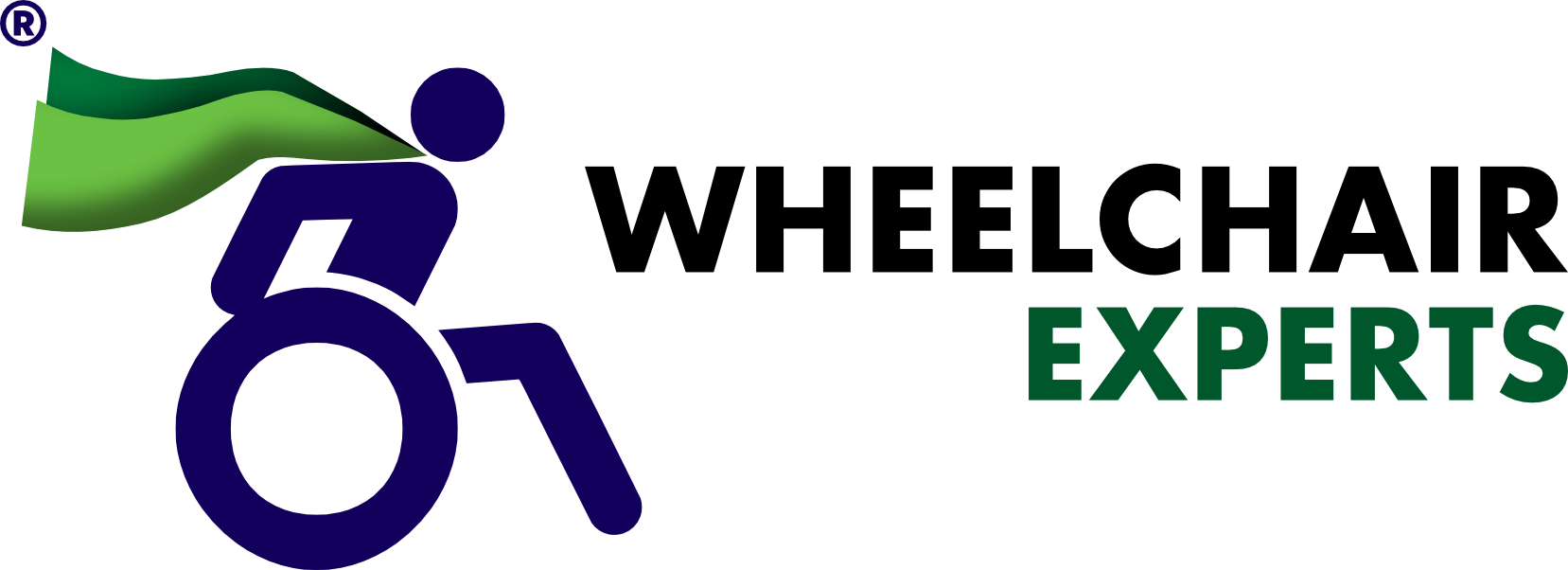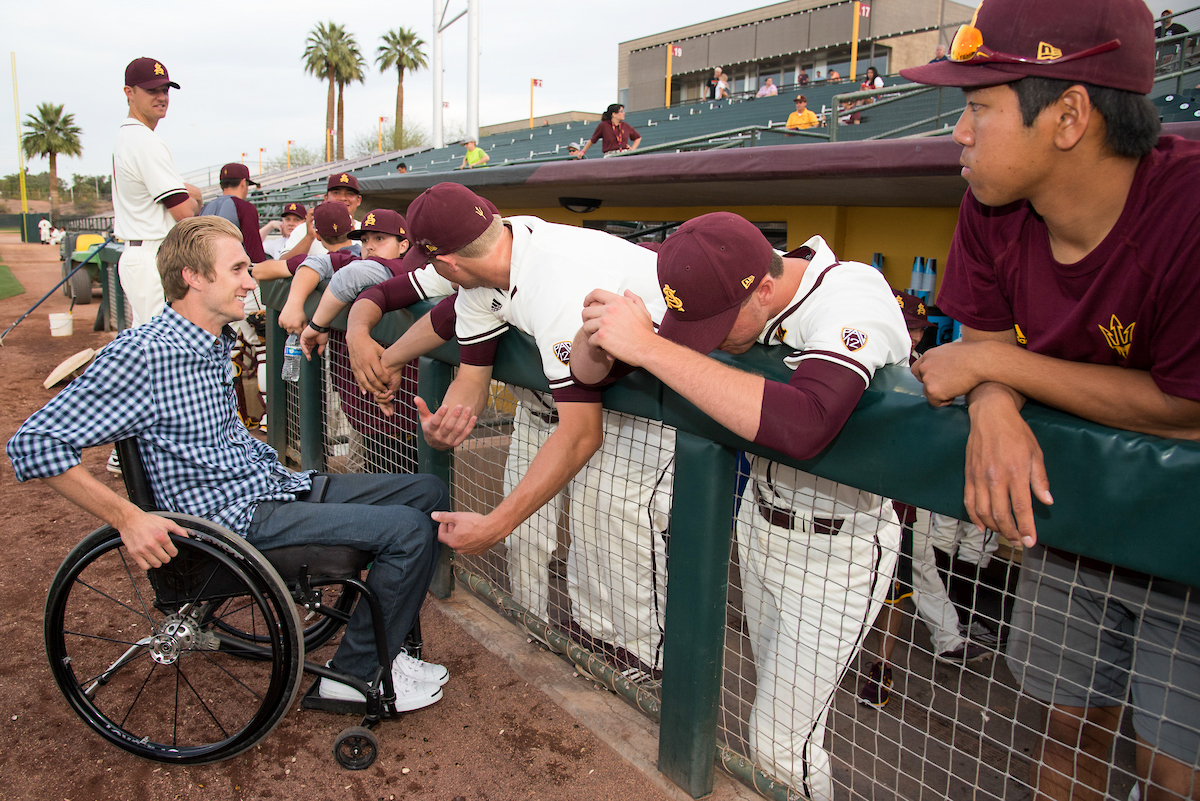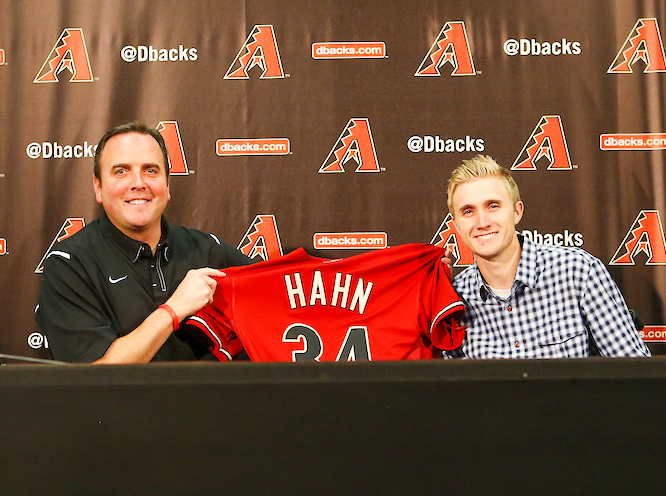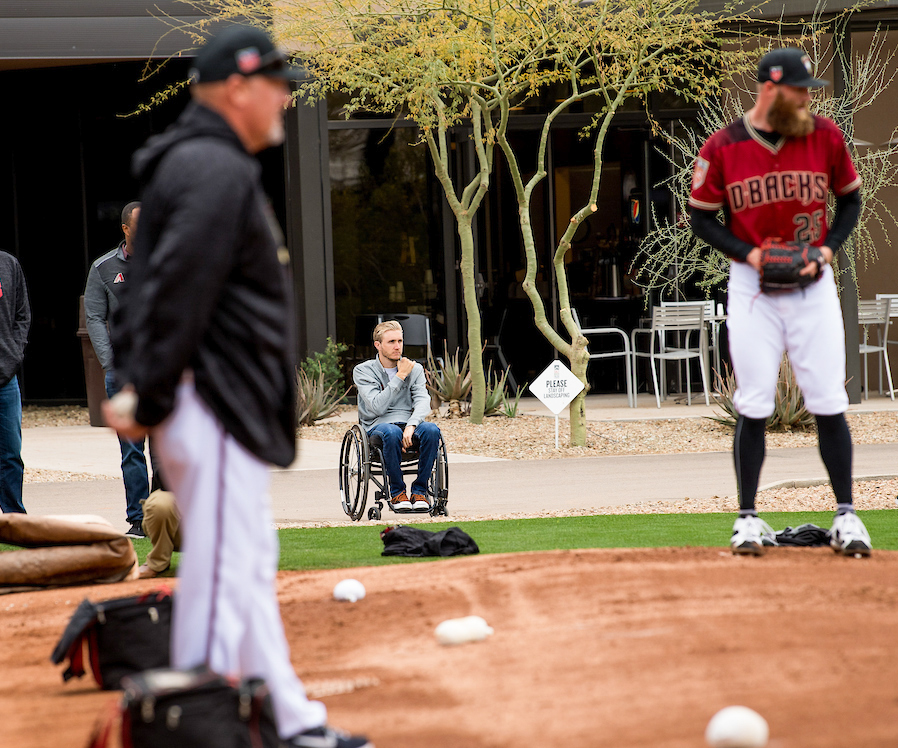The Arizona Diamondbacks decision to draft Cory Hahn in the 34th round of the 2013 Major League Baseball draft was the kind of feel-good story local news broadcasters love. Hahn was one of the top college baseball players in the world in 2011, when he sustained a C5 spinal cord injury on an awkward slide into second base in the third game of his freshman year at Arizona State.
The Diamondbacks were essentially Hahn’s hometown team, and selecting him in the 34th round — chosen because Hahn always wore number 34 — was a low-risk PR win for a savvy organization. Not many 34th round picks ever see the light of day on a major league roster, so what was there to lose?
Indeed, the stories that documented Hahn being drafted congratulated him and the team for adding “another touching layer” to an “inspirational” story. And while it definitely was both touching and inspirational, Diamondbacks President and CEO Derrick Hall knew it was much more than that. He knew that with the 1,020th pick, he’d just gotten a steal.
A spinal cord injury might have ended Hahn’s playing career, but the Diamondbacks understood that many of the same skills and traits that made him successful on the field could translate to the front office. “We already knew in the back of our minds that when he was finished with school, we were going to try and get him in the organization because we thought he could help our team,” says Hall.
What Hall couldn’t have known was that Hahn would exceed all of the team’s expectations, using the same “bulldog” mentality that brought him success in center field to quickly work his way up the organizational ladder and establish himself as one of its rising stars.
Less than seven years after being drafted, Hahn is the Diamondbacks coordinator of pro scouting. He manages the organization’s 21 pro scouts, evaluates players and helps the team formulate its roster. “If I can’t play the game anymore, I’m doing the next best thing, and that’s working within the game and being a part of it still,” says Hahn.
“Not being able to play the game anymore definitely leaves a void in my heart and in my mind,” he says. “I think that’s a void that will never be filled, but the fact that I’m still in the game, and I still get a chance to be around baseball 24/7, it’s the next best thing.”
A ‘Baseball Rat’
Like any parent, Dale Hahn, Cory’s father, worried about his son’s future in the immediate wake of his injury, but amidst all the uncertainty, Dale was certain baseball would remain a part of Cory’s life. “Knowing how he was before, he loved baseball. He was a baseball rat,” says Dale. “That was going to be his life, and nothing was going to change that.”
Hahn returned to Arizona State, and it was like he never left. He rejoined the baseball team as a player-coach. He kept a locker in the clubhouse, dressed for games and sat in the dugout and lived with his teammates. With Dale helping take care of him, and his friends and teammates supporting him, Hahn graduated with a business degree in 2014
He wasted no time getting to work for the Diamondbacks and started his career off the field as an amateur scout, traveling to high school and college games to evaluate talent. Hahn had honed his evaluation skills from the bench at Arizona State and took pride in analyzing players’ strengths, weaknesses and areas for improvement. While he trusted the intuition he had built playing baseball, he gained confidence hearing how his advice improved his friends’ games.
It’s important to note that his friends weren’t some rag-tag group of baseball nobodies, but a high-powered group that included Philadelphia Phillies star Bryce Harper and San Diego Padres slugger Manny Machado, two of the highest-paid players in the history of baseball. Harper and Machado are among many MLB stars who played on an elite traveling team with Hahn in high school and still stay in touch.
“The fact that some of the best players in the world trust my baseball knowledge to identify some of the things they’re doing right and some of the things they’re doing wrong is a really cool feeling,” says Hahn. “It’s a really rewarding feeling, given what I do on a daily basis.”
Despite his high-profile friend list, Hahn still had to deal with the mundane and often infuriating realities of scouting in stadiums where accessibility wasn’t even an afterthought. Scouts traditionally sit together right behind home plate so they can have the best view of the pitcher and talk shop, but those seats are rarely accessible.
“I didn’t get the opportunity to sit down in game and ask a scout, ‘Hey, how do you evaluate this pitcher, or how do you do this?’” says Hahn. “At the end of the day it forced me to really trust my own gut fast.”
Hahn also learned to improvise. “I’ve had to go to some high schools where I’m literally in left field because it’s all grass or dirt behind home plate, and I can’t get back there. Or it’s all bleacher seating, and I don’t have a view. I’ve had to watch games from some really, really crazy and unfortunate areas, all of which I think personally have made me a better evaluator, because I’ve been forced to look at the game a different way, and I’ve been forced to be unique and creative in the way that I evaluate a game.”
Make no mistake, Hahn isn’t simply watching games, he’s documenting every aspect, something that can be tricky with quad hands. “I’ve had to create my own code words,” he says. “I don’t want to say that I’ve created my own alphabet, but I’ve created my own lingo where I know what certain trigger words mean and I know what I need to expand on.”
Dale accompanies Hahn on scouting trips to help with his care, but leaves him to work during games. He says some of the same adaptation skills that helped Hahn adjust to life as a quadriplegic give him a wheel up as an evaluator.
“I’ve seen such growth as far as him being able to adapt to different situations at different ballparks,” says Dale. “He has to think way ahead and adapt, and he does a great job with that.”
New Responsibilities
Four years ago, Hahn took on new responsibilities when he moved to the professional side of the scouting department. He still spends a good deal of time on the road — he estimates around 50 nights last year — but gets to avoid some of the least accessible amateur destinations. He has offices at Chase Field, the Diamondbacks’ Phoenix home and Salt River Fields, the organization’s nearby training facility.
Hahn’s travel responsibilities and daily schedule vary depending on whether the MLB season is going on, but either way, he is on the go. The off-season means less travel and more rehab, and the season means longer days and lots of baseball. Whether he is swamped with work or on the road, Hahn always finds time for the gym, even if it means early mornings and late nights (see sidebar). “That competitive fire and confidence to push myself to my limits every day still burns,” he says. “Baseball really brought that out for me, and I think if I didn’t have those characteristics, or I didn’t work hard every day, I would not be as successful as I am.”
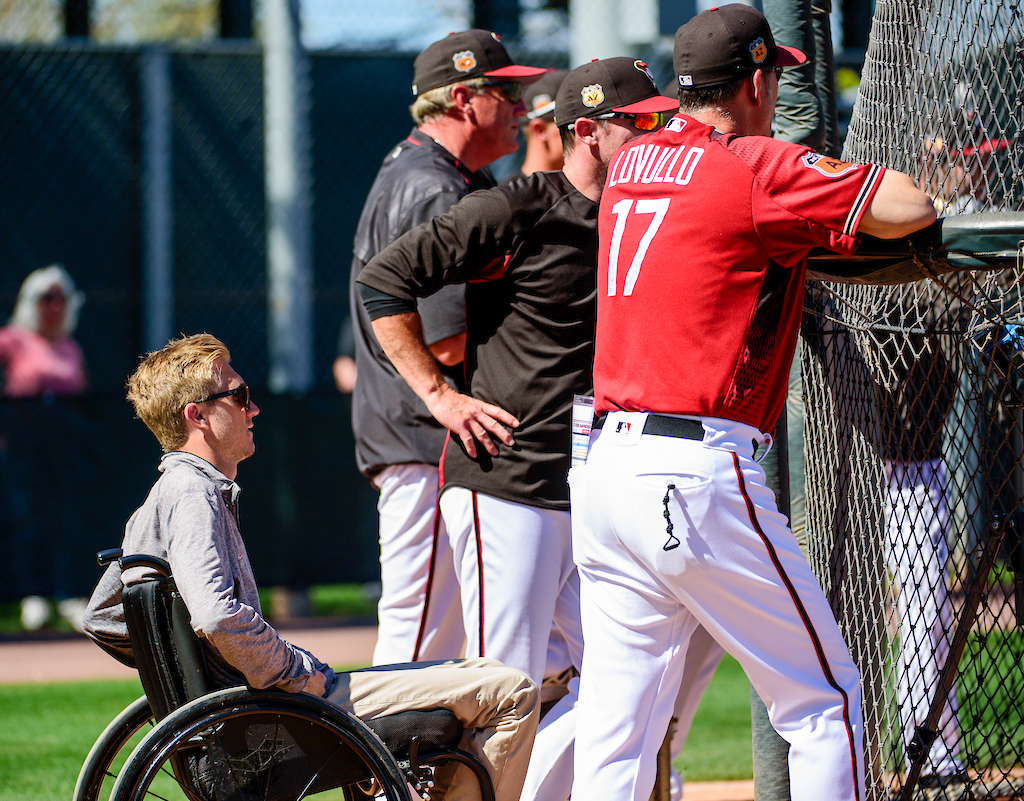
Whether it’s on the field, in the stands, or on the road, Hahn makes a point of keeping up with all of the Diamondbacks day-to-day transactions.
Hall says the organization is happy to keep expanding Hahn’s responsibilities because of the impact he injects wherever he works. “He sees the positives,” says Hall. “He sees the light that most wouldn’t. And he puts it into perspective in a very refreshing way.”
“We’re in a very numbers-based game now; it’s very results driven. Our emotions go with the ups and downs of winning and losing. Hahn is so even keel, and he rubs off on others. His perspective on life — he’s so fortunate, so happy, so content — and it definitely is contagious. It’s something that we all feel and see and feed off.”
Hahn’s positive impact isn’t limited to the world of baseball. In 2018, he teamed up with his childhood friend and longtime teammate, Trevor Williams, now a pitcher for the Pittsburgh Pirates, to launch Project 34, a nonprofit to raise money and support for people with SCI/D.
“I realized that I’ve been very lucky to have an incredible support group,” says Hahn. “But along the way I’ve met some other people who don’t necessarily have that, and we want to be able to be that bridge to somebody. We’re all capable of doing incredible things. We just need the opportunity to do so, and not everybody has that opportunity.”
Williams developed a deeper appreciation for the realities of SCI/D watching Hahn push himself in rehab. As a professional, he was used to the idea of rehabbing an injury intensely for a set period of time and then returning to the field. What he saw with Hahn was different. “It’s a day-to-day process where you could easily fall into despair,” he says. “If you don’t have that community built up around you, then I think it can be really, really tough for some people.”
Still, the two are confident that MLB players will identify with the struggle and are working to grow the nonprofit. They held their second annual Dingers in the Desert fundraiser this winter and are working with MLB teams to host Project 34 days in stadiums across the country.
“Raising money is one thing,” says Williams. “People will always give money. But when you get down to the root of it, we created Project 34 to build community. If building community means helping people with rehab costs, great, but what really goes the furthest is telling someone that you love them and that you’re not alone in this. I think that’s what we wanted to create.”
A Bright Future
For now, Hahn is in a waiting pattern like the rest of the world, thanks to COVID-19, but the novel virus won’t dim the exciting prospects he has on the horizon. “I think whatever he decides to do, sky’s the limit — because he’s qualified, and I think he’s talented enough to do so,” says Hall. “If Hahn wants to switch gears and go down another avenue at any point in the future he can. He could be a broadcaster — he’s got the voice, he’s got the looks. Or he could be a coach — he knows the game so well. But I think he’s enjoying the scouting right now.”
Hahn has a long list of both personal and professional goals that he intends to keep checking off, and he makes no bones about his dream job. “My ultimate goal is to eventually find myself as a general manager of an organization,” he says. “I know that in order to get there, I have to dominate the job I’m in now, and then dominate the next job, and dominate the job after that.”
He’ll continue to work toward that end a day at a time, but that hasn’t kept him from discussing the general manager possibility with Williams. “We give each other a hard time because he’s got the front office vibe, but he’s promised me as soon as he’s a GM that I’m going to be his first transaction, either with a trade or a free agent signing or, really, anything,” says Williams.
Williams joked that Hahn promised he wouldn’t let Williams’ medical history hold up any deal, but turned serious when the conversation came back to his friend’s prospects. “The way he’s going about his professional career now with the Diamondbacks, there’s no doubt that he’s going to be a general manager someday. I believe that,” he says.
Hahn can’t wait. “Despite the challenges, I’ve been given this incredible opportunity to keep baseball in my life, and I wouldn’t want it any other way,” he says.
For more about Project 34, visit projectthirtyfour.com.
Major League Accommodations
Cory Hahn’s rapid rise from former Major League Baseball prospect to a front office executive knocking on the general manager’s door is first and foremost a testament to his tenacity and skillset, but he always makes sure to acknowledge the role the Arizona Diamondbacks front office has played. Beginning with using one of their 2013 draft picks to select him, the organization has gone above and beyond workplace accommodation requirements to ensure his success.
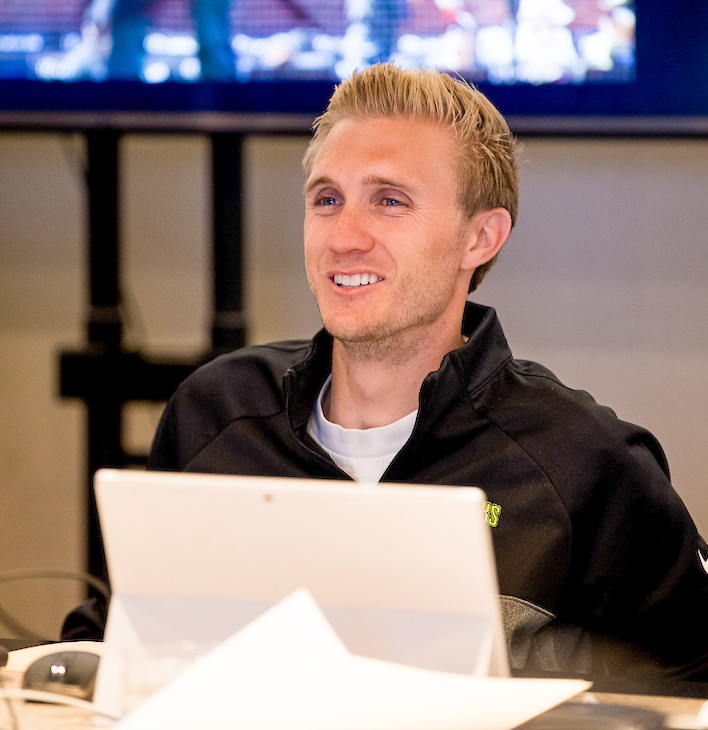 Whether it’s ensuring physical accommodations to make working at Chase Field easier, or giving him the flexibility to juggle the busy schedule of a quadriplegic, Hahn says the Diamondbacks have been great.
Whether it’s ensuring physical accommodations to make working at Chase Field easier, or giving him the flexibility to juggle the busy schedule of a quadriplegic, Hahn says the Diamondbacks have been great.
“They’ve been really understanding that I need to get my rehab in,” he says. “Knowing I have them in my corner and knowing that if I’m not there to the office by 9 on the dot, they’re not going to be searching for me going, ‘What the heck?’ has been huge for me.”
Diamondbacks President and CEO Derrick Hall marvels at how effortlessly Hahn adapts. “He’ll welcome any support we give him, and we do give him support, but he’s never asked for it,” he says. “He’s just an every-day, hard-working, hard-charging employee who’s making an impact on our business, and in particular on baseball, which is what we’re in the business of doing.”
Cory’s Top Three Stadiums for Wheelchair Access
1. Chase Field, Phoenix: I’m a little biased there, but it really is great for access.
2. Nationals Stadium, Washington, D.C.: They’ve done a great job with accessibility at a lot of the newer stadiums and that’s one of my favorites.
3. Petco Park, San Diego: Incredible … probably the best scouting view for me that I can get from the big league fields.
** This post was originally published on https://www.newmobility.com/2020/04/cory-hahn-off-the-field/

